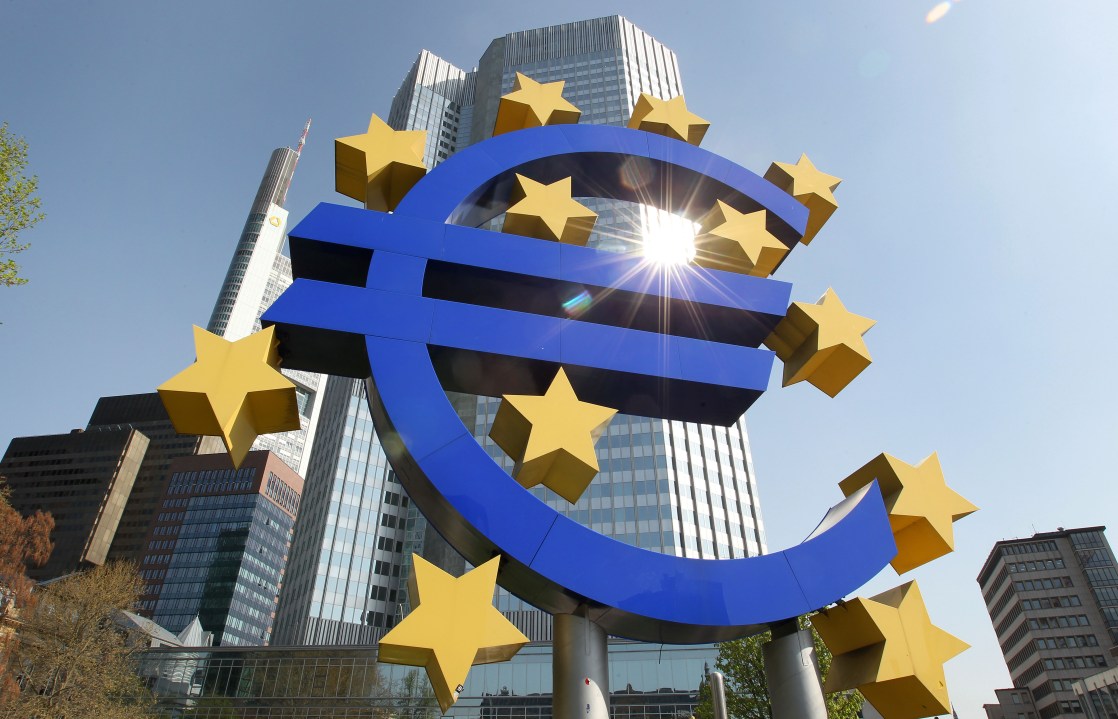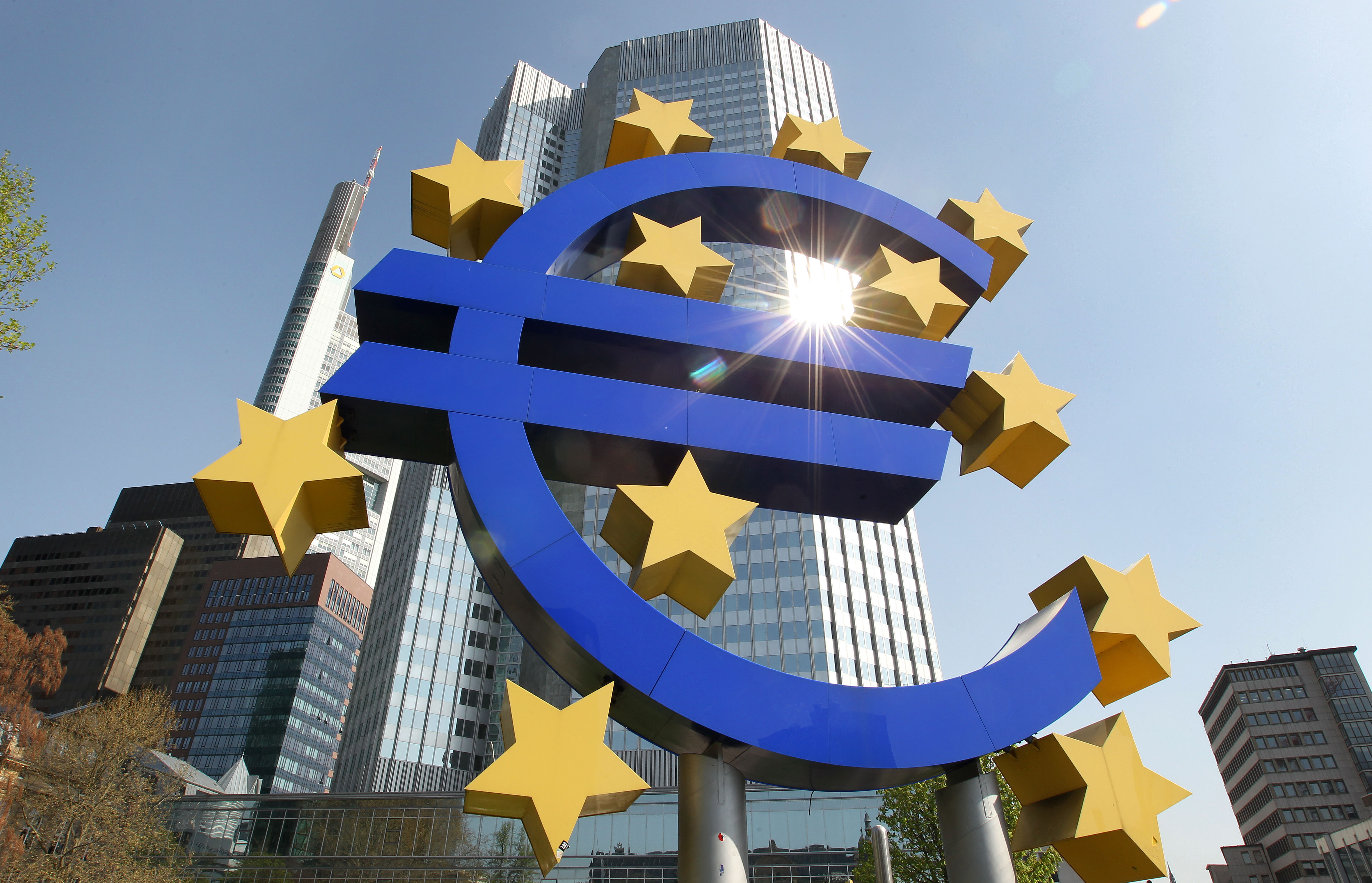Has Germany finally started to shift its position on the future of the Eurozone? Speaking today, at a conference for the German equivalent of the CBI, Chancellor Angela Merkel appeared to open the door to a new form of governance for the 19-country bloc. Since the financial crisis, the common currency zone has bounced from crisis to crisis, surviving by kicking the can down the road at each critical moment. It has long been obvious that major institutional changes were required to ensure the currency’s long-term viability.
During the recent French presidential election campaign, the euro was an important political issue: Marine Le Pen proposed restoring the French franc (albeit in parallel with the single currency); while Emmanuel Macron was a strong defender of the euro and the EU overall. After his election, he doubled down on his EU flag flying but used his victory to call for reforms to the Eurozone and for a ‘relaunch’ of Europe.
Macron said the Eurozone was incomplete – ‘half pregnant’ – and called for changes including a specific parliament (potentially made up of relevant MEPs), a joint budget, and a shared finance minister. At the time, German Finance Minister, Wolfgang Schauble, said that some of Macron’s proposals were ‘possible’ but that EU treaty change was ‘not realistic’. Schauble backed strengthening the European Stability Mechanism, the Eurozone’s bailout fund, rather than creating new institutions.
Today, just two days after Macron’s decisive result in the French parliamentary elections, and the day after Brexit talks began, Merkel has floated the possibility of an ‘economic government’ for the Eurozone. She even said ‘we could of course consider a common finance minister, if the circumstances are right’ and that ‘we could also consider a Eurozone budget if it is clear that we are really strengthening the structure of the economy and doing sensible things’. The significance of these remarks is magnified by the fact that the German federal election is only three months away. These changes would surely require treaty change. The inevitable condition for Germany’s support, will be Macron making progress in reforming the French economy, something which he now has the mandate and majority to achieve.
The German Chancellor’s change of direction is an indication that she now feels more secure of her own position – the prospect of a Merkel-dammerung is fading. Her main challenger, Martin Schulz of the Social Democratic Party (SPD), has seen his poll position slip in recent weeks. Nonetheless, with German federal elections in September, Merkel will be wary of alienating public opinion. There is strong resistance to the prospect of what Germany sees as its taxpayers bailing out the profligate economies of southern Europe. Germany wants to see the Eurozone becoming more German, with tighter control over budgets; France envisages a different path.
After Brexit the balance of power among the remaining 27 member states will shift further towards the Eurozone bloc. This political realignment is only beginning to be appreciated. De Gaulle once said that ‘Europe is France and Germany: the rest are just trimmings’. For the EU that will, in many respects, become truer than ever. Once the UK is out, Sweden and Poland will be the largest non-Euro economies, with the Eurozone countries more able to shape policy in the European Council, and determine the future direction of the Union, potentially over the objection of others.
If France and Germany do ultimately green-light major institutional change in the Eurozone, this will be a very significant development for the EU, another turn of the ratchet towards the creation of a common state-like structure. If the Eurozone has a shared finance minister, even if his or her powers are initially limited, it will be easier for further powers to accrete in due course. Creating the shared architecture of an ‘economic’ government is probably the only way to secure the future of the Eurozone. But voters across Europe will surely wonder whether these constitutional changes are ones they can support. Macron has won a significant victory in France, but on an extremely low turnout.
And euroscepticism, which has deeper roots in France than many imagine, is on the rise, as we saw in the first round of the Presidential elections. And what will other Eurozone countries make of these changes? We may soon find out: any treaty changes required by these reforms, would raise the spectre of referendums across Europe, with all the unpredictability involved.
Henry Newman is Director of Open Europe. He tweets @henrynewman







Comments